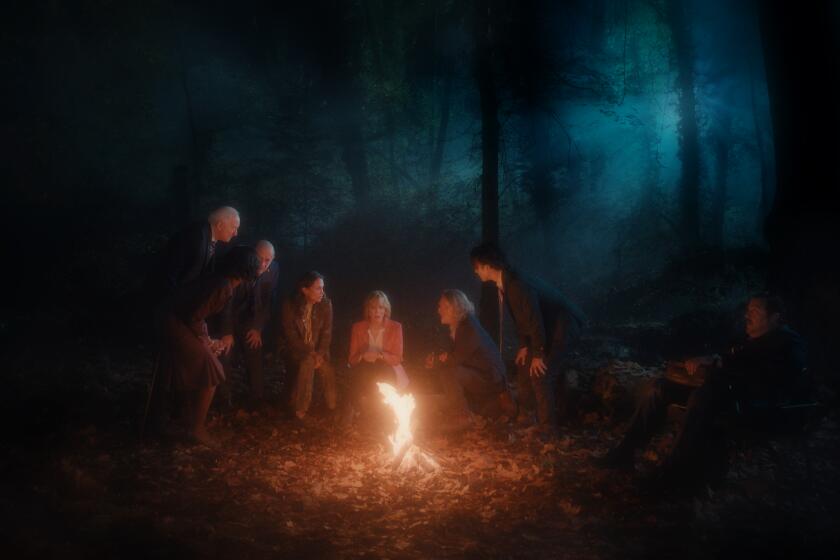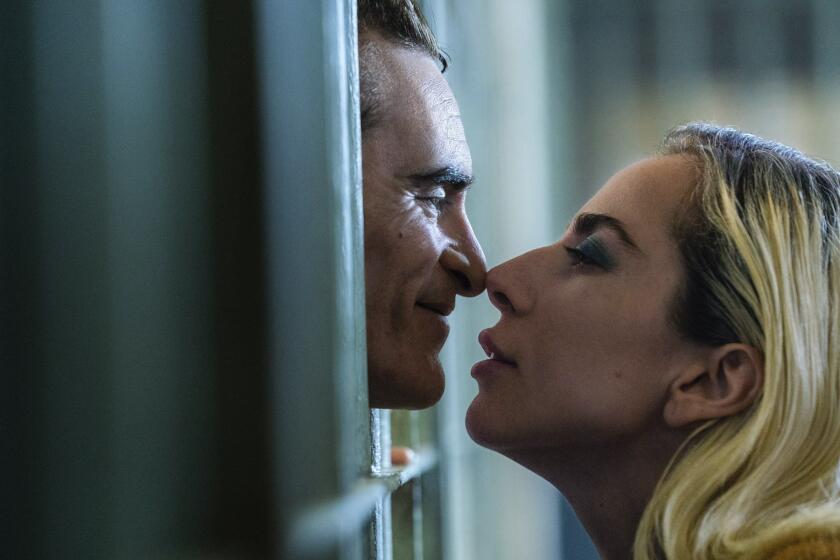Weary Nation Relives Its Past Glory With a Film on Nasser
Tahir Cinema manager Said Ibrahim Masaoud says he’s never seen anything like it--the long lines at the box office, the cheering of “God is great” during showings and the murmurs of “I remember those days” as moviegoers file out into the night.
Egypt’s film sensation of the year--”Nasser 56”--is a grainy, black-and-white docudrama that brings back a golden period in the life of former Egyptian President Gamal Shawki Abdel Nasser, the summer and autumn of 1956 when he nationalized the Suez Canal and stood his ground against the outrage and the guns of Britain, France and Israel.
The movie paints Nasser as a supreme chess player, a fearless leader, a devoted father and a simple man of the people, not to mention a dashing figure with soulful, movie-star eyes. Although it lasts nearly three ponderous hours, the film is striking a much-needed chord of national pride in this filthy, chaotic and impoverished megalopolis.
It reminds viewers of the grand dreams they shared in the heady years after Egypt had finally thrown off centuries of domination by British, French and Turkish influences.
“It’s like watching a history book,” said 18-year-old Ahmad Mofti, a student at the American University of Cairo.
Nasser, the army colonel who led the Free Officers who forced the pro-British playboy King Farouk to abdicate in 1952, is played by actor Ahmed Zaki. He captures the look, voice and mannerisms of Nasser at 38, darkly handsome as he walks along a beach, cupping a cigarette and brooding about how to finance the Aswan High Dam project.
His dilemma: The United States and Britain have withdrawn their offer to help finance the Nile River dam that will meet Egypt’s needs for power and a more regular flow of water to cultivate land to feed its burgeoning population.
Nasser sees the rejection as superpower politics, aimed at keeping Egypt poor and tethered to the West. His answer: nationalize the Suez Canal Co., a European-dominated state-within-a-state that has been a blot on Egyptian sovereignty since the canal opened in 1869.
For the next hour or so of the movie, Nasser springs his brainstorm on various aides and ministers, who react with either uncontrolled joy or sheer terror. The always-practical Egyptian secret service dispatches a spy to figure out how the West will react.
Between the president’s many appointments, there are repeated scenes of Nasser’s four children rushing in to wrap their arms around his knees. Other touches include Nasser piously refusing to allow the army to build a swimming pool for his children, turning up his nose at European food to eat simple peasant fare and telling his teary-eyed wife of his dream to take her on a cruise one day.
The energy of the movie comes in two key speeches--one on July 26, 1956, in Alexandria, when Nasser gives the secret code word and then announces the nationalization of the canal, and the other the following October at a Cairo mosque, when he mounts the pulpit and shouts his defiance to the British-French-Israeli alliance that has seized the Sinai.
Critics of the movie in Egypt say its portrayal of Nasser is too rosy, with no foreshadowing of the mistakes that came later in his rule. Others argue that it gives Nasser, who died in 1970, too much credit for conceptualizing the nationalization, which had been discussed in patriotic circles for decades.
Egyptians recognize that, but the movie is good for their mood. “We want to take a break from the difficult business of living in a world ridden with political complexities and travel to a past when things were simple,” said one critic, “to the days when the movies talked in black and white.”
More to Read
Only good movies
Get the Indie Focus newsletter, Mark Olsen's weekly guide to the world of cinema.
You may occasionally receive promotional content from the Los Angeles Times.










